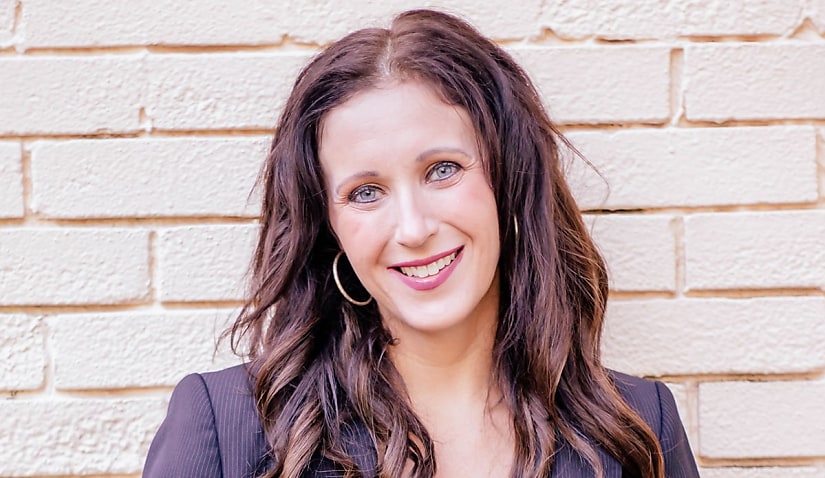Using complicated legal jargon in-house is ‘on the line of stupidity’
Part of being an excellent in-house lawyer is being able to communicate with leaders across the business — something this professor and GC argued is part of using plain English rather than “legalese”.

Based in Miami, Krista Russell is an adjunct professor of law at the University of Miami School of Law and the deputy general counsel of Airbus OneWeb Web Satellites.
To continue reading the rest of this article, please log in.
Create free account to get unlimited news articles and more!
Speaking recently on The Corporate Counsel Show, Ms Russell spoke about “legalese” — and why, particularly for in-house lawyers, using more plain English may be the way forward.
Lawyers tend to make themselves more “elitist” when using language others find harder to understand, according to Ms Russell, who said that this is a “widespread” problem within the profession.
“I don’t know that I necessarily would call it a problem myself so much as a professional hazard. I think that it’s a self-created problem. We’re a self-regulating profession. We also create our own problems. I think there is a little bit of, we like to set ourselves apart. We like to be the person that has the most knowledge in the room, however we communicate, whether in writing or in meetings or whatever else. I think that we do it out of a self-perpetuating promotional cycle,” she said.
“However, I know that in my 13 years now working in-house, my audience, which is generally business people, appreciates a professional tone and tenor, but has no need for legal jargon of any kind, and frankly, almost is annoyed by that. I try to write in a very more narrative format that is quick points when necessary or whenever possible really, but is not overly complicated, not the long extensive run-on sentences with points one, two, and three. I try to write how I would say any business executive would want to read.”
Forgoing the use of “legalese” is particularly important for in-house lawyers, as they often communicate with teams across a business.
“Whether in private practice, whether it’s other attorneys in your firm or your clients who are attorneys for their companies, usually both of those audiences are attorneys and can understand and read that. However, I’ve said this to my team many times. When I receive a memo from an outside counsel, I want to be able to take that memo and show it to my CEO. If it’s not accessible to them and it doesn’t have the high-level summary points and it’s not written like a business person, it’s really worthless to them,” Ms Russell explained.
“I don’t mind reading the citations and the case law and whatnot, but I also trust my outside counsel to do that research and just come back to me with the summary points. I’m not really looking particularly in-house for case law supporting various points. I’m looking for summaries.
“I think it is really critical to in-house practice. In the in-house setting, you are not just tasked to know the law. You are often, and I love this about in-house practice, asked to provide an opinion, a professional recommendation, and to guide the business towards step A, B, C, or D, whichever approach they’re going to take. If your communication style does not make sense to the people who are sitting at the table with you, then your opinion is not likely to be the path chosen.”
Therefore, if in-house lawyers can’t communicate well, they’re likely to make existing challenges harder — and are also less likely to get a seat at the table.
“The CEO’s not going to walk down the hall to the general counsel’s office unless they can communicate well. Really in a business setting, that should be probably the first door that they go knock on. It really is. When in-house counsel can be valued and looked at that way, it’s not because they’re not speaking the same business speak; it’s because that CEO has come to rely on and value the input of the legal department and the representative,” Ms Russell quipped.
“As a business person, I prefer that my stakeholders in my business look at me as a business person first and a lawyer second, like a smart business person that knows the law also, versus a lawyer that knows a little bit about the business. I really think it’s that frame of reference that if you can shift that, that really makes you effective.”
Ms Russell recommended shortening sentences and removing unnecessary adjectives to be better understood within a business context, as well as “figuring your shit out” in terms of why you might want to use more complicated language.
“Figure out what makes you tick and where your emotional responses are in law because a lot of times in drafting, and I see this among my law students all of the time, their writing style and their speaking style come from somewhere. It comes from the need to impress someone or performing for applause or whatever it is. When you figure out who you are and you figure out the stuff that makes you tick and what you’re passionate about and what triggers you might have, you feel the need to stop performing,” she added.
“You can have the most brilliant lawyer or be the most brilliant person in the room or the company or the industry, but if you cannot communicate your brilliance to whomever your audience is, it’s really not going to matter. Brilliant, but misunderstood does not get you anywhere. It’s actually probably on the line of stupidity.”
The transcript of this podcast episode was slightly edited for publishing purposes. To listen to the full conversation with Krista Russell, click below:






